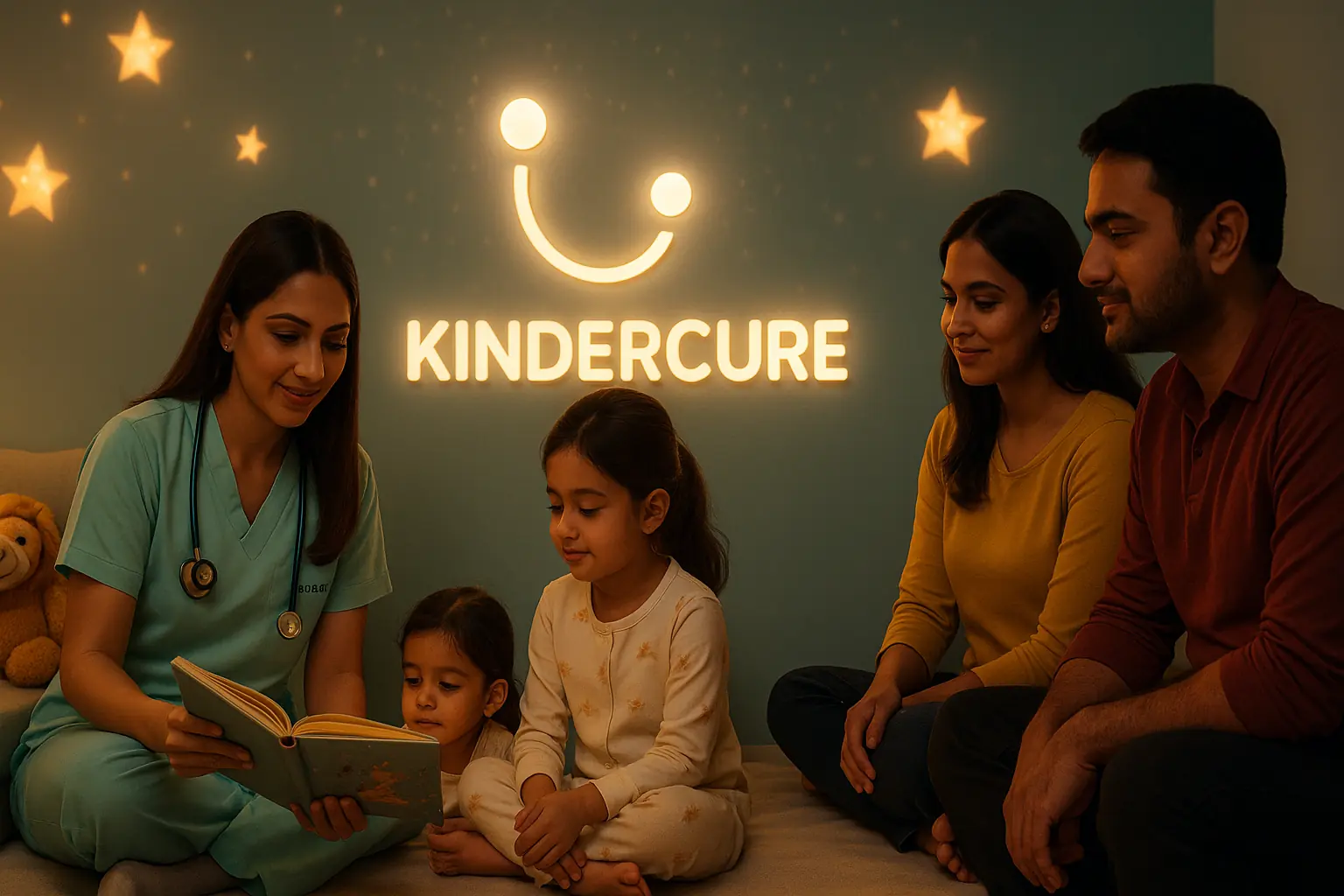Promoting Healthy Sleep Habits in Children: A Parent’s Guide

Promoting Healthy Sleep Habits in Children: A Parent’s Guide
As parents, we often focus on nutrition and exercise for our children’s health, but sleep is an equally crucial pillar of their well-being. In this guide by KinderCure, we’ll explore why sleep is so important for children and provide practical strategies to ensure your child gets the restful sleep they need for growth and development.
“Healthy sleep habits are a gift that parents can give their children, which will serve them well throughout their lives. At KinderCure, we’re dedicated to helping families establish these routines for the well-being of our youngest patients.” – Dr. Garima Mengi, KinderCure
The Critical Role of Sleep in Child Development
Sleep isn’t just a time for rest; it’s a period of intense physiological activity where growth and development occur. Lack of adequate sleep can lead to issues with attention, behaviour, learning, and overall mental and physical health. Recognising signs of sleep deprivation, such as irritability, difficulty concentrating, and excessive daytime sleepiness, is crucial for parents [1].
How Much Sleep Do Children Need?
The American Academy of Sleep Medicine provides age-specific guidelines for children’s sleep duration [2]:
- Infants (4-12 months): 12-16 hours (including naps)
- Toddlers (1-2 years): 11-14 hours (including naps)
- Preschoolers (3-5 years): 10-13 hours (including naps)
- School-aged children (6-12 years): 9-12 hours
- Teenagers (13-18 years): 8-10 hours
However, it’s important to remember that every child is unique. Consulting with a paediatrician at KinderCure can provide personalised advice tailored to your child’s specific needs. During well-baby visits and pediatric consultations, we assess sleep patterns as part of comprehensive developmental assessments.
Crafting a Soothing Bedtime Routine
A consistent bedtime routine signals to your child that it’s time to wind down. This routine can include a warm bath, reading a story, or some quiet time. Gradually winding down activities leading up to bedtime can make the transition smoother.
Optimising the Sleep Environment
A sleep-conducive environment is cool, quiet, and dark. Comfortable bedding, blackout curtains, and white noise machines can enhance sleep quality. Keep the room free from distractions like TVs and other electronic devices.
Navigating Common Sleep Challenges
Children may face various sleep issues, such as night awakenings, nightmares, or resistance to going to bed. Address these calmly and consistently. Techniques like soothing music, a night light, or a favourite stuffed animal can provide comfort and security. If sleep challenges persist, our pediatric consultations can help identify underlying issues and develop effective solutions.
The Impact of Screen Time on Sleep
Screens emit blue light that can disrupt the body’s natural sleep-wake cycle. Limit screen time at least an hour before bedtime to promote better sleep [3].
The Benefits of Daytime Activity
Physical activity during the day can help children sleep better at night. However, avoid vigorous activities close to bedtime as they can be stimulating.
Dietary Considerations for Better Sleep
Avoid heavy meals, caffeine, and sugary foods close to bedtime. Opt for a light snack if your child is hungry before bed.
The Power of Parental Example
Children learn by example. Parents who prioritise healthy sleep habits and maintain consistent sleep schedules set a positive precedent for the whole family.
Conclusion: Embracing Healthy Sleep
Establishing healthy sleep habits lays the foundation for your child’s growth and development. Consistency and patience are key. With the right strategies, you can help your child embrace a healthy sleep routine that will benefit them for years to come. Remember, for personalised advice and guidance, you can consult the best paediatricians in Gurgaon at KinderCure.
References:
[1] Paruthi, S., Brooks, L. J., D’Ambrosio, C., Hall, W. A., Kotagal, S., Lloyd, R. M., … & Wise, M. S. (2016). Recommended Amount of Sleep for Pediatric Populations: A Consensus Statement of the American Academy of Sleep Medicine. Journal of Clinical Sleep Medicine, 12(6), 785-786. Link
[2] Hirshkowitz, M., Whiton, K., Albert, S. M., Alessi, C., Bruni, O., DonCarlos, L., … & Adams Hillard, P. J. (2015). National Sleep Foundation’s sleep time duration recommendations: methodology and results summary. Sleep Health, 1(1), 40-43. Link
[3] Chang, A. M., Aeschbach, D., Duffy, J. F., & Czeisler, C. A. (2015). Evening use of light-emitting eReaders negatively affects sleep, circadian timing, and next-morning alertness. Proceedings of the National Academy of Sciences, 112(4), 1232-1237. Link
